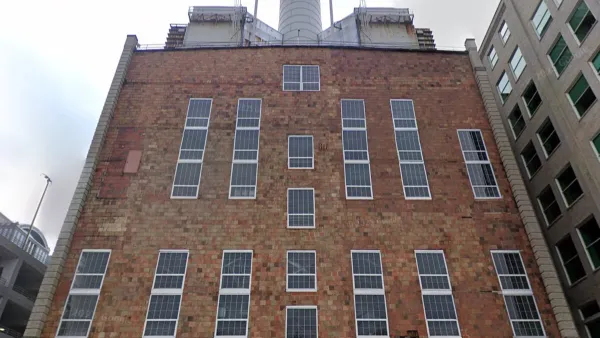Amidst the paradoxical increase in ridership demand, Yonah Freemark explores the plague of transit cuts reinforcing regional inequalities across the country.
Unfortunately, the draconian 35% service cuts announced by Pittsburgh's regional transit authority last week are the rule, rather than the exception, as cities across the country increase fares and cut routes, as they struggle with declining subsidies essential to maintaining operations.
"The counterintuitive result is that cities that are doing well economically are able to pay for improved transit services whereas those with many economic problems - the ones where transit is often needed most - are left to cut operations dramatically. Thus regional inequities are reinforced."
What is the path out of this vicious cycle of declining service and rising inequality? Freemark suggests two potential roads:
"Cities and states like Pittsburgh that are facing massive cuts in public services should absolutely call on Washington to increase its provision of aid to local governments, especially through operations support. But absent that - and in this day and age we cannot count on the Congress for much - raising local and state taxes is a serious option. It takes guts for public officials to promote tax increases, but we need to keep the trains and buses running."
FULL STORY: The Economic Crisis Rolls on in Cities like Pittsburgh

Maui's Vacation Rental Debate Turns Ugly
Verbal attacks, misinformation campaigns and fistfights plague a high-stakes debate to convert thousands of vacation rentals into long-term housing.

Planetizen Federal Action Tracker
A weekly monitor of how Trump’s orders and actions are impacting planners and planning in America.

In Urban Planning, AI Prompting Could be the New Design Thinking
Creativity has long been key to great urban design. What if we see AI as our new creative partner?

Portland Raises Parking Fees to Pay for Street Maintenance
The city is struggling to bridge a massive budget gap at the Bureau of Transportation, which largely depleted its reserves during the Civd-19 pandemic.

Spokane Mayor Introduces Housing Reforms Package
Mayor Lisa Brown’s proposals include deferring or waiving some development fees to encourage more affordable housing development.

Houston Mayor Kills Another Bike Lane
The mayor rejected a proposed bike lane in the Montrose district in keeping with his pledge to maintain car lanes.
Urban Design for Planners 1: Software Tools
This six-course series explores essential urban design concepts using open source software and equips planners with the tools they need to participate fully in the urban design process.
Planning for Universal Design
Learn the tools for implementing Universal Design in planning regulations.
Gallatin County Department of Planning & Community Development
Heyer Gruel & Associates PA
JM Goldson LLC
City of Camden Redevelopment Agency
City of Astoria
Transportation Research & Education Center (TREC) at Portland State University
Jefferson Parish Government
Camden Redevelopment Agency
City of Claremont




























